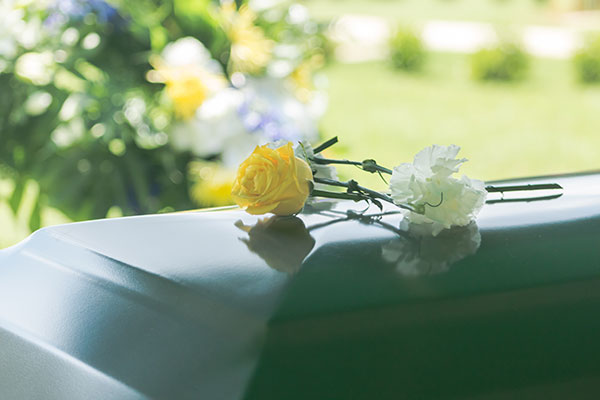
They help organize all parts of the services to ensure that the funeral process is as painless as possible for the grieving family. Funeral directors are also responsible for filing paperwork regarding the death. Depending on the workplace, they may also supervise staff or have administrative responsibilities.
If you are interested in learning more about working in a funeral home, then the Stratford Career Institute Funeral Service Education course can help you begin to prepare for your future.
Funeral Director Salary
The salary of a funeral director can depend on many things, including if the funeral director also works as a mortician or undertaker, the type of workplace, where the workplace is located, the funeral director’s responsibilities and a funeral director’s experience and education.
According to the United States Department of Labor, the average funeral director salary in May 2017 was $51,850 per year.
From self-reported salary data of 602 current funeral directors, Indeed found that the average salary for a funeral director was $55,464 per year in November 2018.
Similarly, Sokanu used user reported data and found that the average hourly wage of a funeral director is $25.08 and that funeral director salaries typically range between $26,722 and $80,185.
Funeral Director Responsibilities
The responsibilities of a funeral director will vary depending on the type of workplace that a funeral director works in.
Overall, funeral director responsibilities revolve around making sure that services are properly arranged.
A funeral director’s responsibilities commonly include:
- Arranging transportation of the deceased
- Working with loved ones to plan a funeral
- Placing death notices where appropriate
- Arranging for the presence of clergy at services
- Arranging for and organizing special tributes
- Fling paperwork with state, federal and local governments as needed
- Completing musical requests
- Ordering and displaying flowers
- Organizing pallbearers
- Arranging thank you cards
- Handling death certificates
- Helping the deceased’s heirs file for benefits
- Providing excellent customer service
- Supervising staff
- Being ready to support the family in any way they can
If the job of mortician falls under the “funeral director” title, then a funeral director’s responsibilities may also include preparing the deceased. This can include embalming or cremating the body.
In order to be successful in carrying out their responsibilities, many funeral directors need to be available at night and during weekends, sympathetic to grieving families, strong communicators, highly organized, and able to follow instructions.
Start Your Career as a Funeral Director
To learn more about working in funeral homes, learn from the Stratford Career Institute. The Funeral Service Education Distant Learning Course is an affordable and convenient way to learn more about being a funeral director.
Or, browse the course catalog and enroll in another class today! From small engine repair to child daycare management, we know there’s a course for you.
Become a Funeral Diretor

Learn more about being a funeral director in our online course.

